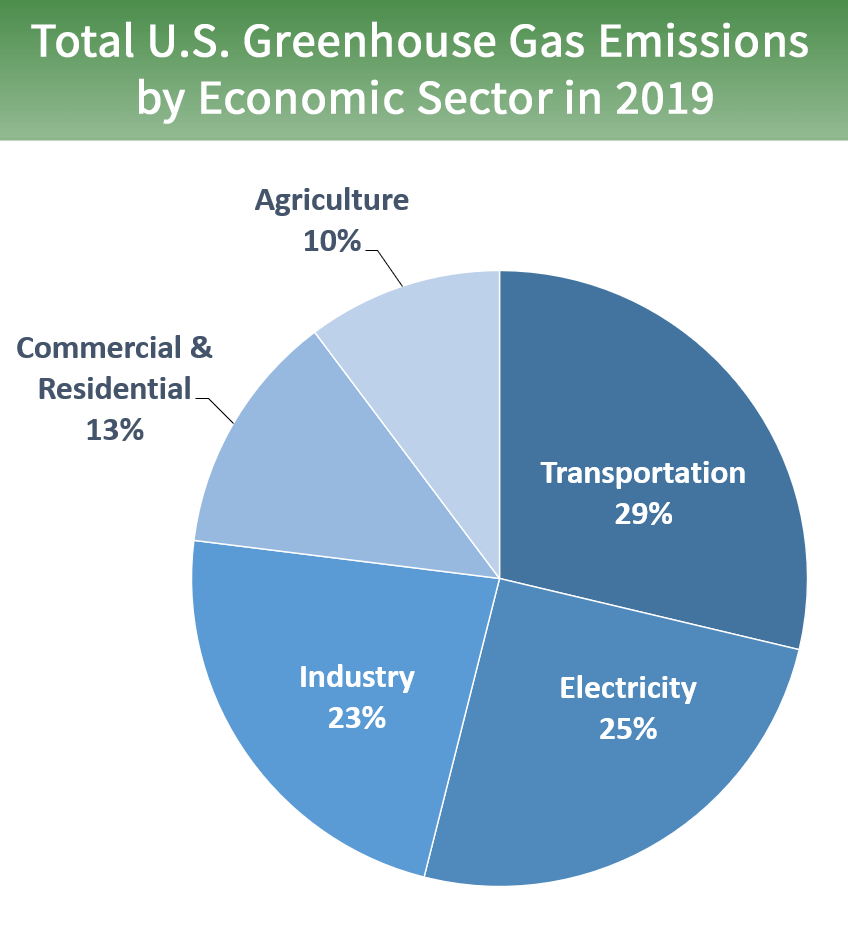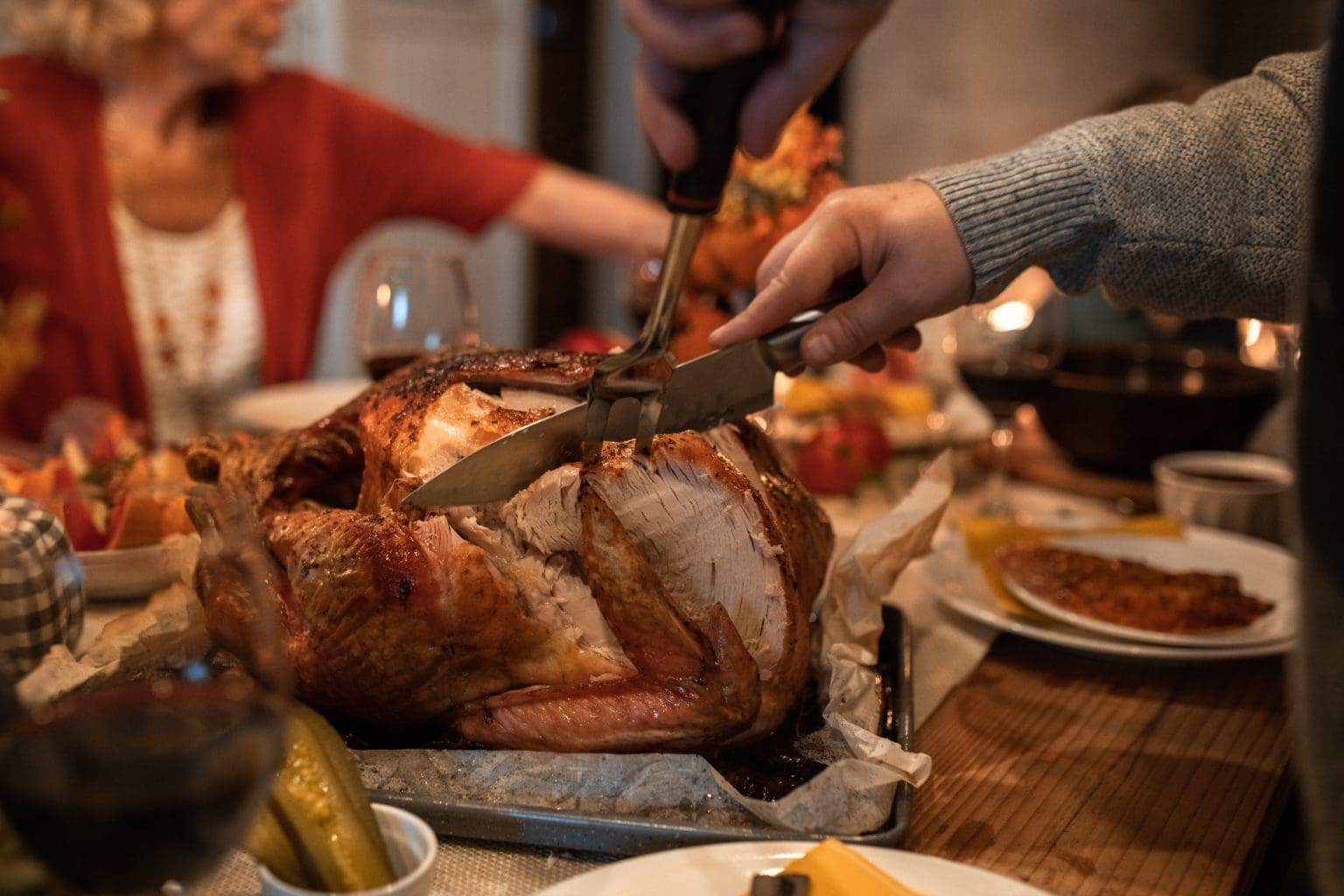By Bailey Chenevert
For many of us, the holidays can be a double-edged sword of merriment and stress. Christmas brings the joy of giving gifts to loved ones, and the insanity of holiday shopping. Thanksgiving delivers the smell of roast turkey, and awkward conversations with distant relatives. And, especially for the modern consumer, the holidays can be a constant balance of purchase decisions that truly celebrate the season and giving our money to corporations that have inseparably linked the holidays to consumption. How does the conscious consumer navigate the holiday season, where the line between celebration and consumption is so blurred?
This is the question that the Cluey blog endeavors to answer in a 3-part series concerning the holidays and overconsumption. Because even with today’s focus on ethical shopping and sustainable purchases, overconsumption is ingrained in modern holiday traditions. Today, in the second part of the series, we’re gobbling up all of the most important information about Thanksgiving consumer behavior to let you know how we can partake as conscious consumers without giving up the best parts of the holiday.
Thanksgiving: The Issues Beyond an Overcooked Turkey
By the time Thanksgiving rolls around, most of us are also beginning to contribute to the extra 25 million tons of waste produced each holiday season. Here are some facts about the not-so-positive impacts of this particular holiday’s season:
- Travel: Thanksgiving tops other holidays when it comes to traveling. More than 50 million people travel during Thanksgiving, often by domestic flights. Overall, when it comes to top sources of greenhouse gas emissions in the U.S., transportation takes the biggest share of the pie at 29%. While over half of those emissions in the transportation sector comes from automobiles, the fastest growing contributor without a carbon-free substitute and least advanced in fuel-efficiency is air-transportation. Flights departing from airports in the U.S. account for one-quarter of related global emissions.

(Image from epa.gov)
2. Shopping: The Thanksgiving buying period is the biggest ever thanks to the back-to-back spending sprees of Black Friday and Cyber Monday. Black Friday accounts for a massive increase in e-waste, plastic production and carbon emissions. With the addition of Cyber Monday, holiday deals begin earlier and earlier each year. November 21 to November 26 now make up the busiest shopping days of the year. Although most Thanksgiving shoppers will buy online this year rather than in-store (some notably trying to embrace sustainability) the lower carbon footprint of online shopping is often negated by expedited shipping this time of year (particularly on an already stressed supply chain).
3. Food Production & Waste: The average American family wastes about 1,160 lbs of food each year; bountiful Thanksgiving meals often contribute to this wasted food the week after the festivities. And for the main dish? In order to sell cheaper turkeys, many producers raise them in cramped, confined metal cages with minimal humane care. Many turkeys are also genetically modified to maintain a lot of white meat, which causes difficulty walking and poor quality of life as the birds age.
We know – it seems like all bad news. But does that mean you have to swallow a mouthful of guilt with every delicious bite of Thanksgiving dinner or with every dollar saved from taking advantage of buying on peak gift-purchasing days? Like we’ve said before, it’s not a crime to enjoy the holidays, but some statistics can really take the wind out of our sails in a time of celebration. If you feel at odds with enjoying the celebration and how that can misrepresent your conscious consumerism values, you’re not alone. It’s good to be aware of the impacts that overconsumption during the holidays can have, but that doesn’t mean they shouldn’t be celebrated altogether. There are plenty of ways to fully embrace the festivities ethically and consciously.
Thanksgiving: Re-imagining for Improved Impact
Celebrate the holiday however you’d like and remember that individual action can make a big impact. Here are a few tips if you’d like to celebrate this year with conscious consumerism in mind:
- Travel: Choosing to alter your travel logistics is easily the most impactful way to reduce negative side effects of Thanksgiving traditions. Given just about all common travel options come with a carbon footprint, the calculation of which is most efficient is often dependent on a per-capita calculation (as well as the fuel-type). For example, it might seem counterintuitive, but you could actually double your emissions if you cancel your plane trip (on a full flight) and choose to drive across the country solo in your SUV instead.
- According to calculations by the National Geographic Green Guide and analysis from Treehugger, “Assuming that your travel is fully booked, the diesel bus comes out on top, followed by the high-speed train, the car with three people in it, then the medium aircraft.”
- Additionally, choosing to celebrate at a loved one’s home whose proximity decreases the net miles traveled by all in attendance can also decrease overall emissions.
2. Shopping: Knocking your holiday shopping off the list is synonymous with Thanksgiving week, but this could also be an opportunity to embrace more meaningful forms of gift-giving over participating in the annual over-spending spree of items that will often be landfilled within a week of gifting.
- Go for experiences over items: Buying gift cards to a local restaurant or tickets to a show are great ways to support small businesses and create a memory that will last over an item that your loved-one may not really need anyway.
- If you are going to gift an item, slow gifting is the way to go! While it’s probably a little too late to embrace this practice for this holiday season, the concept of slow gifting is waiting to find that perfect, non-mass-produced item for the one you love outside of the major consumer seasons. This supports smaller businesses, and doesn’t contribute additional strain on supply chains.
3. Food Production & Waste: A few considerations from buying your non-perishables in bulk this time of year to increasing plant-based recipes, brand selection and more can keep your tummies and conscious consumer hearts full when preparing the perfect Thanksgiving meal.
- Thanksgiving is a good time of year to load up on baking supplies. If you need flour and sugar for a pecan pie, it may be a good idea to buy these kinds of items in bulk. They won’t go bad quickly, bigger items reduce packaging waste and it can save you money.
- Much of the waste from big holiday meals comes from transporting food. Buying local mitigates transportation emissions and supports local farming communities.
- For food waste at home, check out ideas on what to do with leftovers, and how to prepare more efficiently by visiting savethefood.com
- When it comes to the bird, buying items like pasture-raised turkeys is fresher and supports more humane practices. Additionally, heritage turkeys, while more expensive than the typical Broad-Breasted White, have more time to reach maturity and generally live in better conditions with access to large pastures and better feed.
- Or ditch the bird altogether. Much of the environmental consequences of Thanksgiving dinner comes from the methane produced while raising meat for slaughter. Plant-based dishes are great as sides and can bring something new and exciting to try at the table this year.
Lastly, some brands have become synonymous with the Thanksgiving feast. Use the Cluey platform to compare brands and see if there are more ethical companies you may want to purchase from.



Our Takeaway
To many modern consumers, it may seem as though the original sentiment of this particular holiday has faded over time, and there’s merit to this thought. Since the 1920s, major corporate brands have incessantly sent the message that eating and buying more and more is essential to the celebration of being Thankful.
We hope to bring you closer to what really makes the holidays special for each unique person beyond consumption. You may even find that just being aware of the consumerism underlying holiday traditions helps you reconnect with what you truly cherish about this season. Check out the Cluey blog for some articles that can help get you started on more conscious holiday spending and don’t forget to create your Cluey account to compare brands and learn about the impact your purchases have on people, the planet, and politics.
———————————————————————————-
Bailey Chenevert is a freelance journalist and guest editorial contributor for Cluey Consumer. As a current master’s student at Appalachian State University, Bailey is researching the ways media consumption impacts our psychology. Bailey is passionate about impartial reporting on consumerism and the impacts that fashion brands have on our modern world. She has more than six years of experience in journalism as a writer, editor and director.

